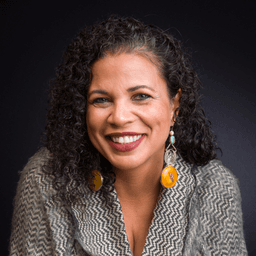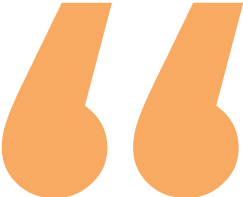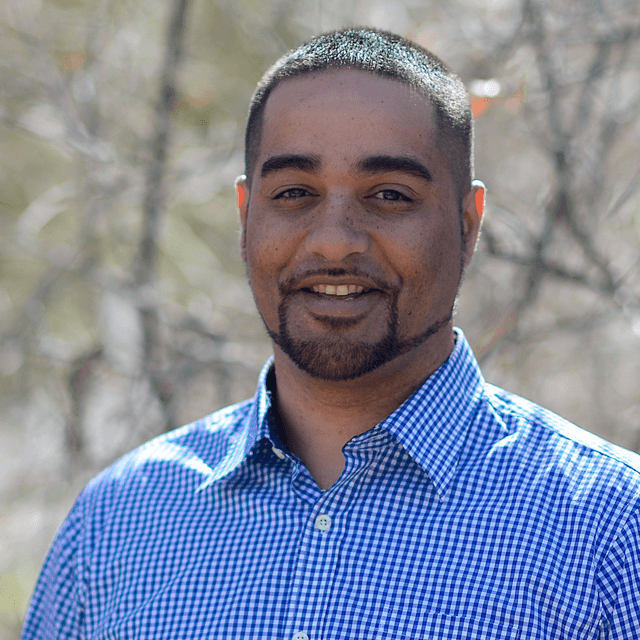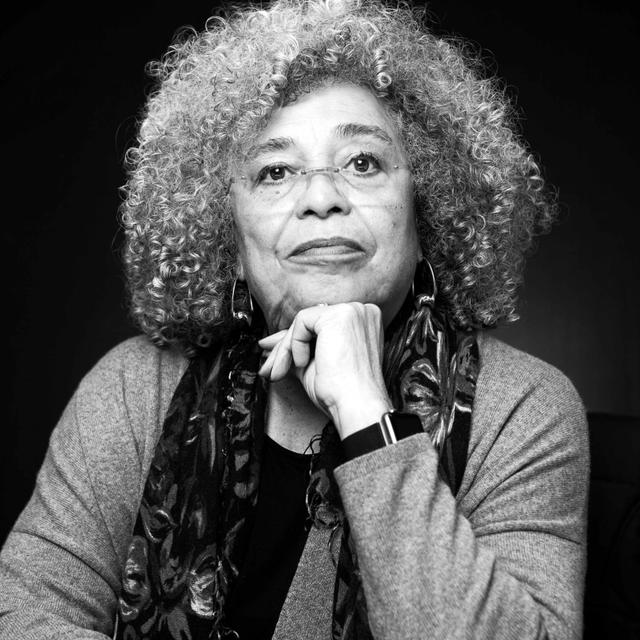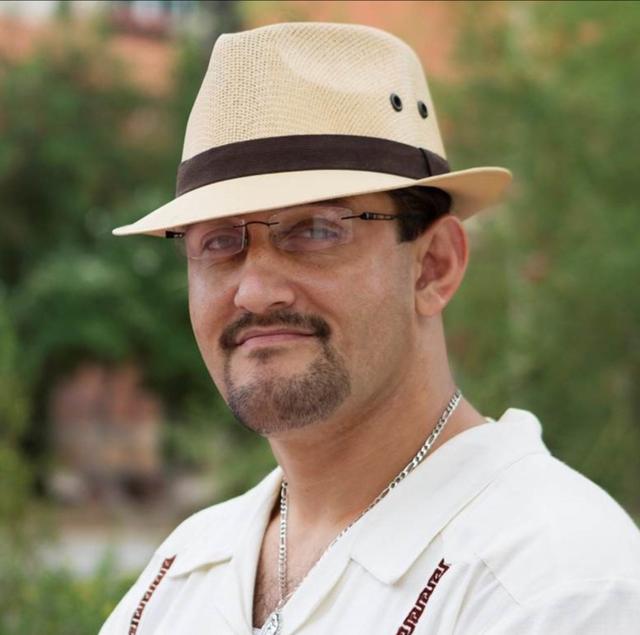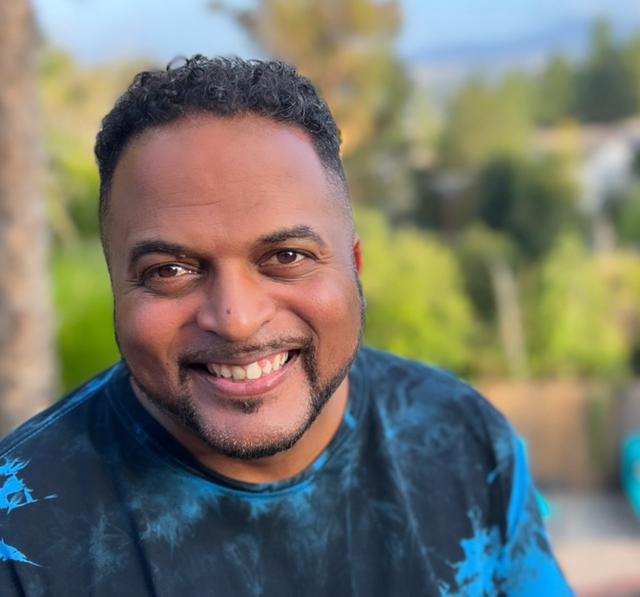Dr. Melina Abdullah is a recognized expert on race, gender, class, and social movements. She was among the original group of organizers that convened to form Black Lives Matter and continues to serve as a Los Angeles chapter leader.
She is also Professor and former Chair of Pan-African Studies at California State University, Los Angeles. Dr. Abdullah earned her Ph.D. from the University of Southern California in Political Science and her B.A. from Howard University in African American Studies.
Professor Abdullah is a womanist scholar-activist, understanding the role that she plays in the academy as intrinsically linked to broader struggles for the liberation of oppressed people. Professor Abdullah is a leader in the fight for Ethnic Studies in the K-12 and university systems and was a part of the historic victory that made Ethnic Studies a requirement in the Los Angeles Unified School District, also serving on the Taskforce for the Advancement of Ethnic Studies for the California State University system.
Abdullah is the author of numerous articles and book chapters, with subjects ranging from coalition-building to womanist mothering. She has contributed to popular media outlets, including The Root, Los Angeles Times, Truthdig, Los Angeles Sentinel, Los Angeles Progressive, and BK Nation.
She is also co-host and co-producer of the weekly radio program Beautiful Struggle which airs on KPFK, part of the Pacifica radio network, and hosts and produces the weekly internet radio show “Move the Crowd,” which airs on Radio Justice (radiojustice.org).
From 2014-2018, Dr. Abdullah served on the Los Angeles County Human Relations Commission, where she initiated and chaired the county-wide hearings on community experiences with policing and was instrumental in replacing Columbus Day with Indigenous People’s Day. Dr. Abdullah also serves on a number of boards for, among others, the Black Community, Clergy and Labor Alliance (BCCLA), California Faculty Association-Los Angeles, Los Angeles Community Action Network (LA-CAN), and the National Association for Ethnic Studies.
Melina is the recipient of many awards, most recently the 2018 Community Service Award from National Council for Black Studies, 2017 Unsung Heroes Award from the Oscar Grant Foundation, 2017 Extraordinary Service Award from the African Heritage Studies Association, 2017 Justice Work Award from Beyond the Bars, 2017 Freedom Fighter Award from the NAACP, 2017 Activist Award presented by the National Association for Ethnic Studies, among numerous others.
She has appeared on MSNBC, CNN, TV One, ABC, PBS, Revolt TV, KTLA, KCET, BET, Free Speech TV, and Al-Jazeera, and is featured in the films "Waking the Sleeping Giant," "13th," "When Justice Isn’t Just," and "Justice or Else" and in the television series "Two Sides."
Melina is originally from Oakland, California. She is a single “soccer mama” of three children and resides in Mid-City Los Angeles.
Black Lives Matter and the Making of a Mass Movement
A presentation by one of the original members and an on-the-ground organizer of the #BlackLivesMatter global network, offering a political history of the movement as a point in Black freedom struggle. Through personal narrative and movement analysis, this conversation presents the vision and hope for the movement as well as its approach and tactics. It also provides tangible ways to plug in to the work.
The Audacity of Blackness: Rights, Repression, and Resistance in the Black Lives Matter Era
Almost a decade ago, Black Lives Matter was birthed as a new iteration of the Black freedom struggle. It stands as an assertion that Black people have the right to live and walk freely and hold a sacred duty to struggle to end state-sanctioned violence. Black Live Matter is deeply rooted in the Black radical tradition and, as such, has been targeted by the state for repression. While the impact is felt, organizers continue to audaciously summon transgenerational memory and power to resist, vision, and build towards freedom and justice.
Heeding Our Sacred Duty
At a time when it might seem that the “movement moment” is winding down, this conversation will focus on why and how we identify our sacred duty…the work that we are called into to build a more just world. We will discuss how each of our contributions come together to build and maintain the racial and social justice movement and how the “beautiful struggle” continues beyond times of mass uprising.
Womanist Leadership
Womanist leadership is discussed as an oppositional model to the asymmetrical leadership structure advanced by white men. Black women, who stand at the intersections of race, gender, and often additional oppressions (class, sexuality, physical ability), have developed and practiced models of leadership that are tied to their identities and collective in focus. This talk presents the tenets of womanist leadership, drawing from historic and contemporary examples and analysis.
Free Speech and the Targeting of Black Protest
Where “free speech” rights for white supremacists are advanced and protected by right-wing individuals and organizations, Black protest is subject to increasing criminalization and repression, especially when organizers are acting in response to police violence. Black people are killed at least every 28 hours by police, security, or vigilantes, and hate crime (both documented as such or not) is surging, with Black people as the primary target. Black organizers are being tracked, surveilled, intimidated, arrested, and charged, while white officers and vigilantes who kill and brutalize Black people do so with virtually universal impunity.
Defund the Police: What It Means & What Must Be Done
A consistent call coming out of nationwide protests is to Defund the Police and Abolish the Police. What do these demands mean in practice? How can we transform our communities and end a policing institution born out of the system of chattel slavery and fueled by white supremacy? The police brutality and violence we have been witnessing is also linked to the ongoing militarization of local police forces. The resources that police departments drain away from community needs like health care, education, and housing has to end. Some cities are already in motion - Minneapolis is dismantling its police department, a number of cities are moving money from bloated police budgets to Black and Brown communities. New legislation in Congress aims to end and punish police misconduct. This is a timely presentation that will bring clarity to a sometimes confusing topic.
The Rise of New White Supremacy and What it Means for Black People
The campaign and presidency of Donald Trump ushered in a new white supremacist era, manifesting in terms of rhetoric, policy, and White supremacist violence. Even out of office, his influence still impacts politics and politicians. Beyond resistance, Black people and allies are challenged to vision and organize alternative political, economic, and social models that beat back the kind of blatant oppression Trump and his followers represent.
"The Intellectual Arm of the Revolution": Black Freedom Struggle and 50 Years of Black Studies
Black Studies was founded out of student and community struggle and is deeply rooted in Black Power demands. It was never an academic initiative ushered in by institutions, but a challenge to them. 50+ years after the establishment of the first Black Studies Department, the discipline continues to frame itself as revolutionary in terms of subject matter, pedagogy, and epistemology.
Visioning Liberation (Talk)
This session focuses on the importance of visioning and radical imagining. It examines transformational movements and leaders and the tools that have been successful in moving beyond resistance and towards new visions. The talk can also be coupled with an interactive workshop.
Visioning Liberation (Workshop)
This workshop can accommodate between 8 and 25 participants (up to 100 if co-facilitated). Through a series of exercises, participants engage in both individual and collective visioning. If desirable, visions can be broken down into goals, objectives, and projects.
